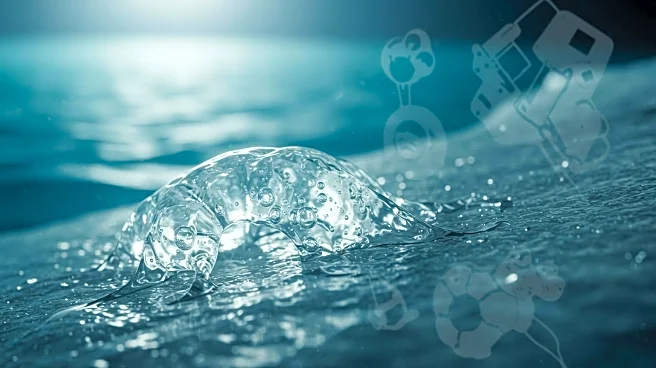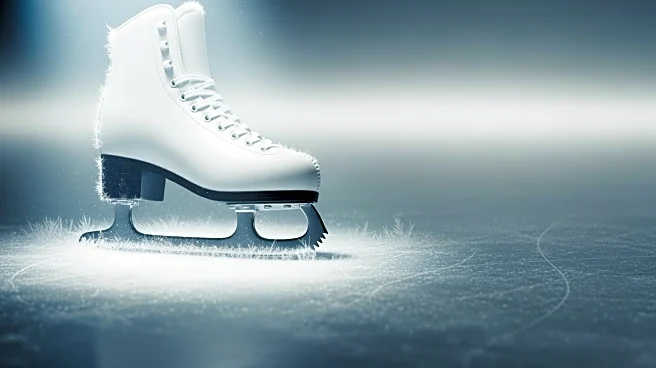What is the story about?
What's Happening?
Researchers have developed a new water-resistant hydrogel that surpasses natural adhesives in strength and durability. Utilizing machine learning, the team synthesized hydrogels inspired by natural organisms like geckos and mussels. These hydrogels exhibit remarkable adhesive properties, capable of sticking objects like a rubber duck to a seaside rock, even under saltwater conditions. The development process involved analyzing a vast dataset of natural adhesive protein sequences and synthesizing candidates through a copolymerization process. The strongest hydrogel was derived from Escherichia bacteria proteins, demonstrating significant adhesive strength and biocompatibility. The research aims to apply these hydrogels in medical adhesives, marine repairs, and soft robotics.
Why It's Important?
The development of these hydrogels represents a significant advancement in materials science, with potential applications across various industries. In medicine, these adhesives could improve surgical procedures by providing stronger, water-resistant bonding. In marine environments, they could facilitate repairs and construction, offering durable solutions in challenging conditions. The use of machine learning in the development process highlights the growing intersection of technology and materials science, potentially accelerating innovation and reducing costs. This breakthrough could lead to more sustainable and efficient solutions in both healthcare and environmental sectors.
What's Next?
The research team plans to further customize the hydrogel for specific applications, including medical adhesives and marine repairs. Continued collaboration with machine learning experts may enhance the development process, leading to even stronger and more versatile materials. The potential for commercial applications could attract interest from industries seeking innovative adhesive solutions. Future studies may explore additional natural organisms for inspiration, expanding the range of possible applications and improving the hydrogels' properties.















